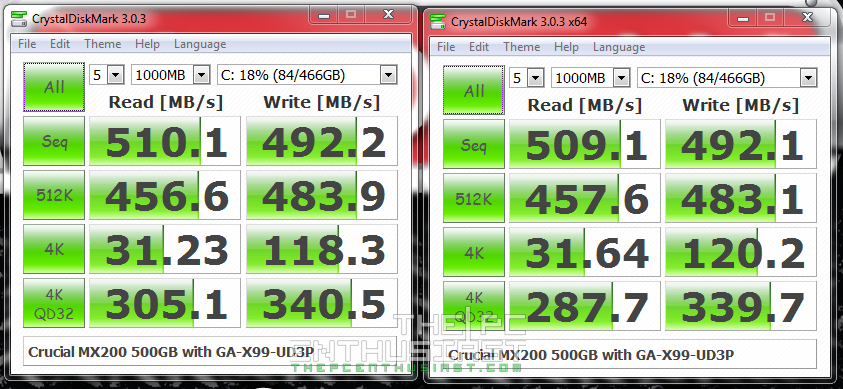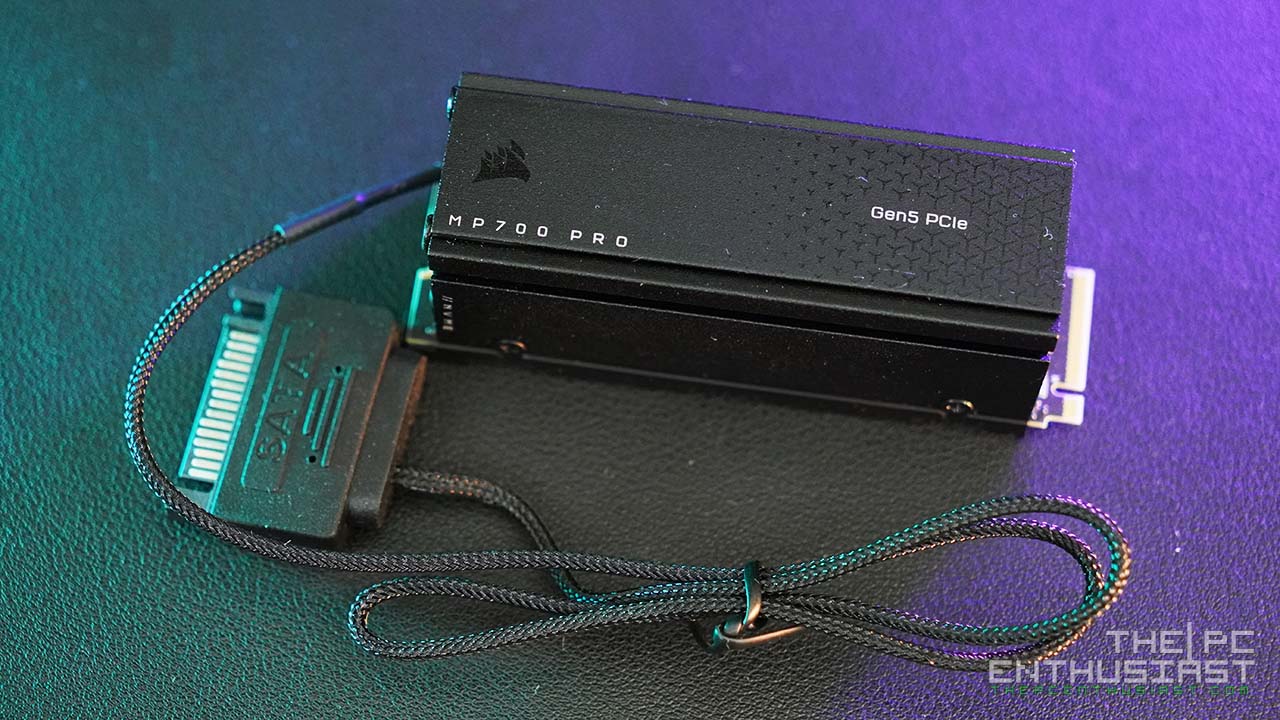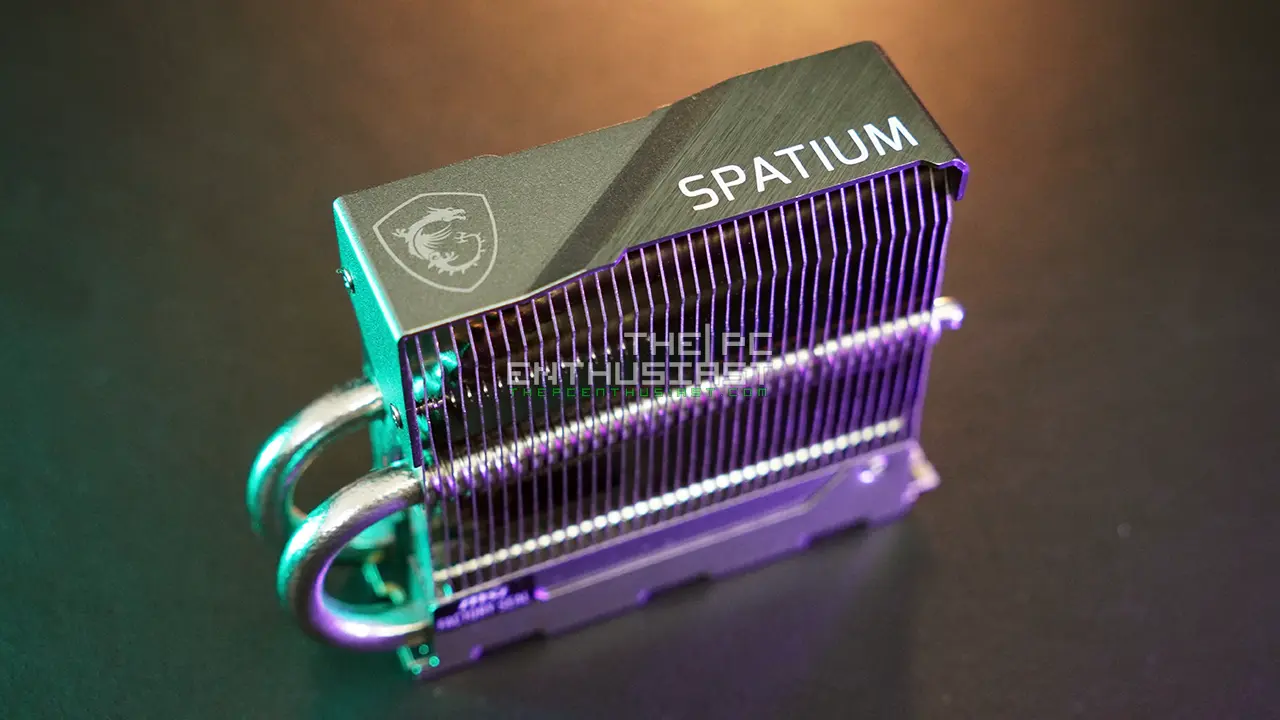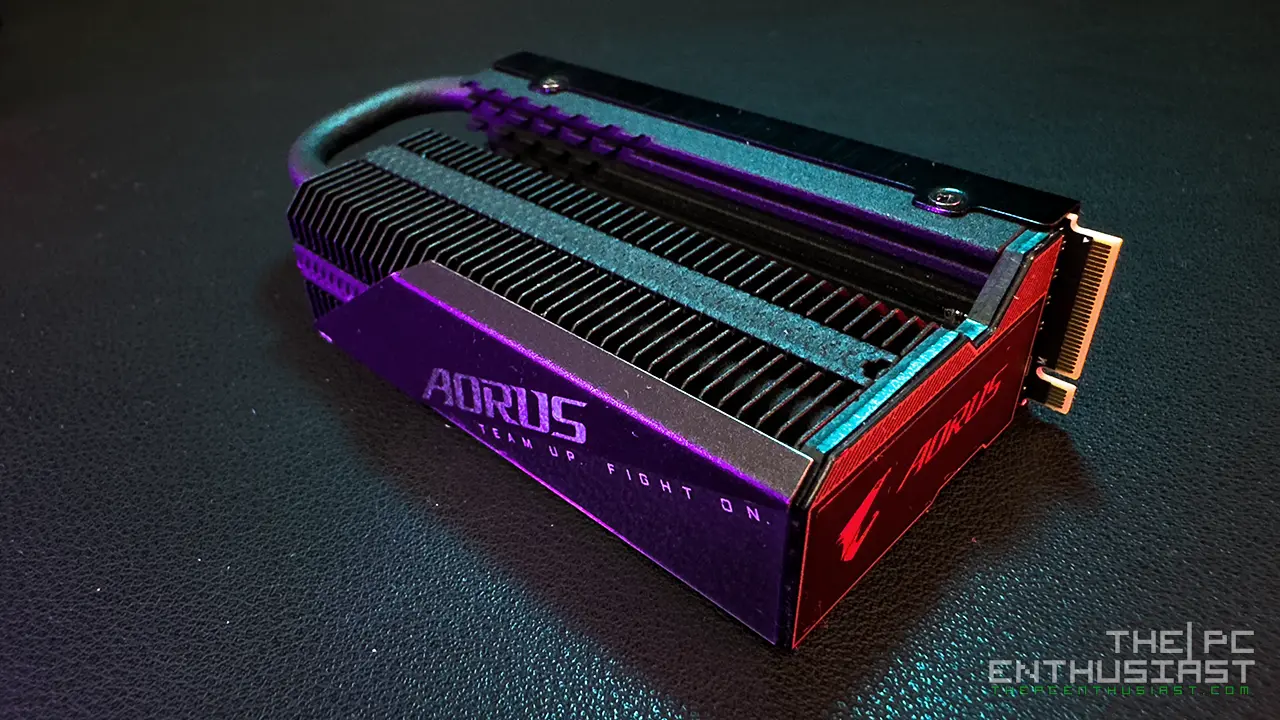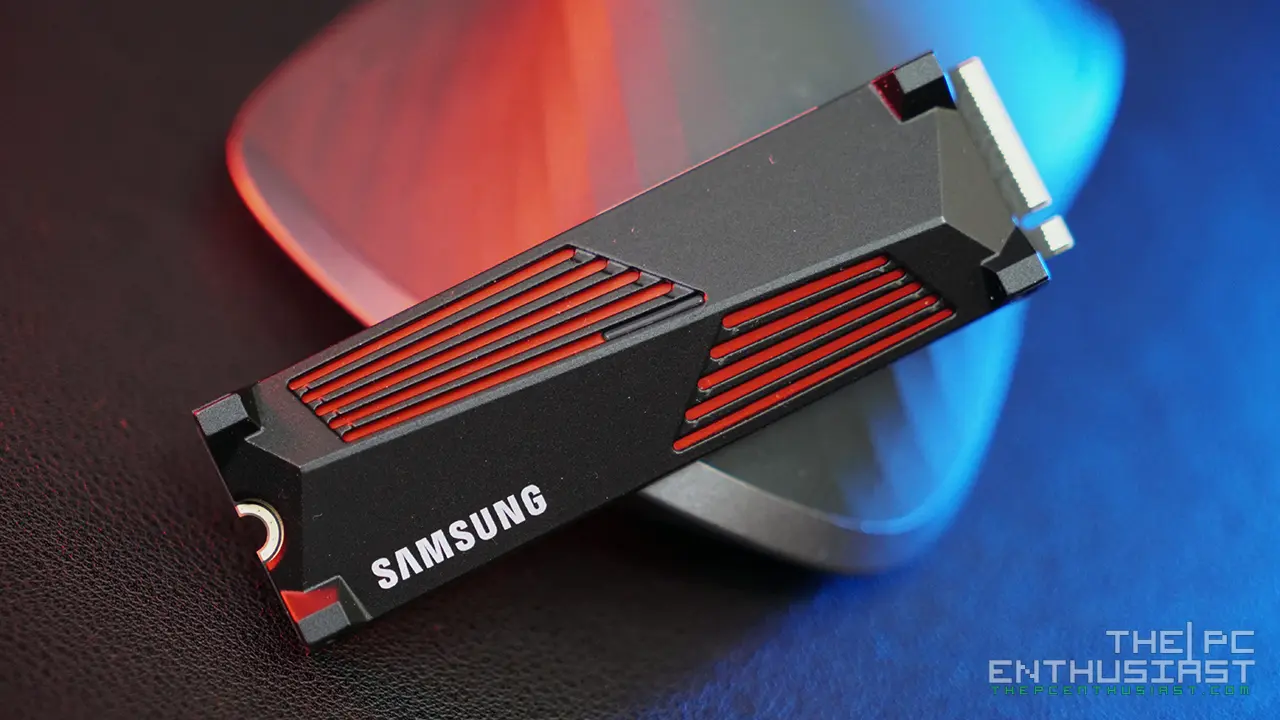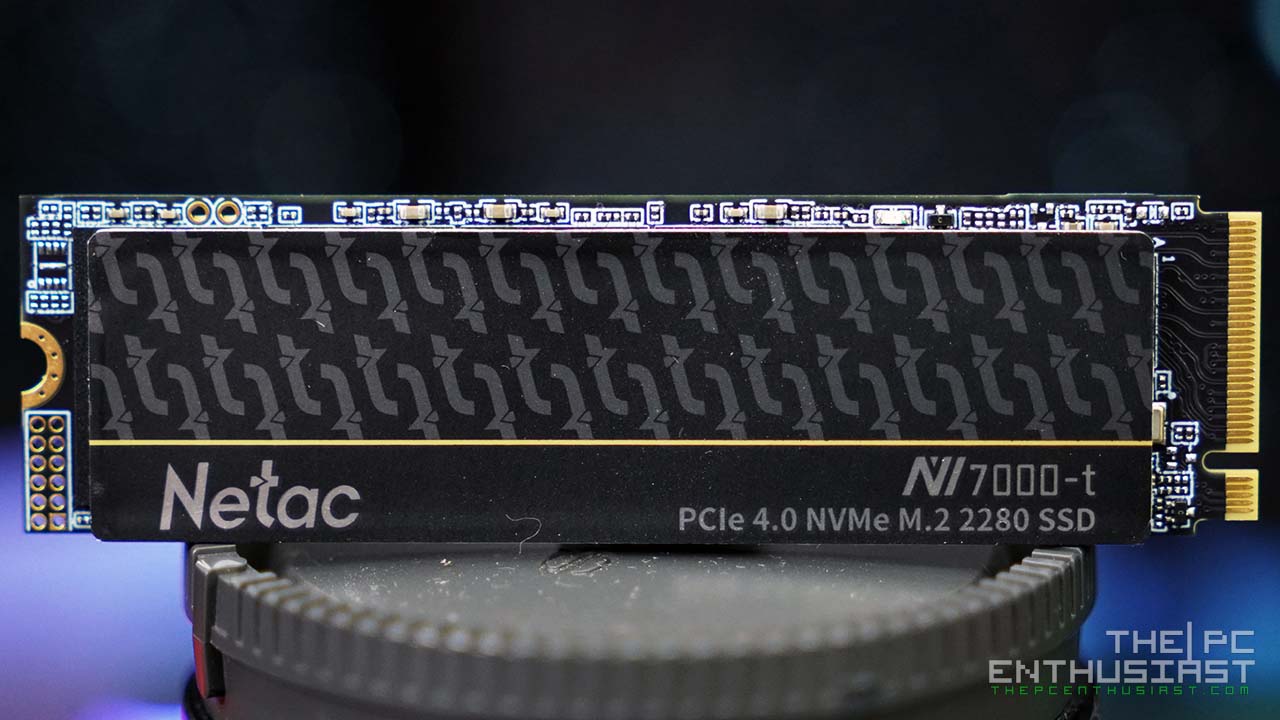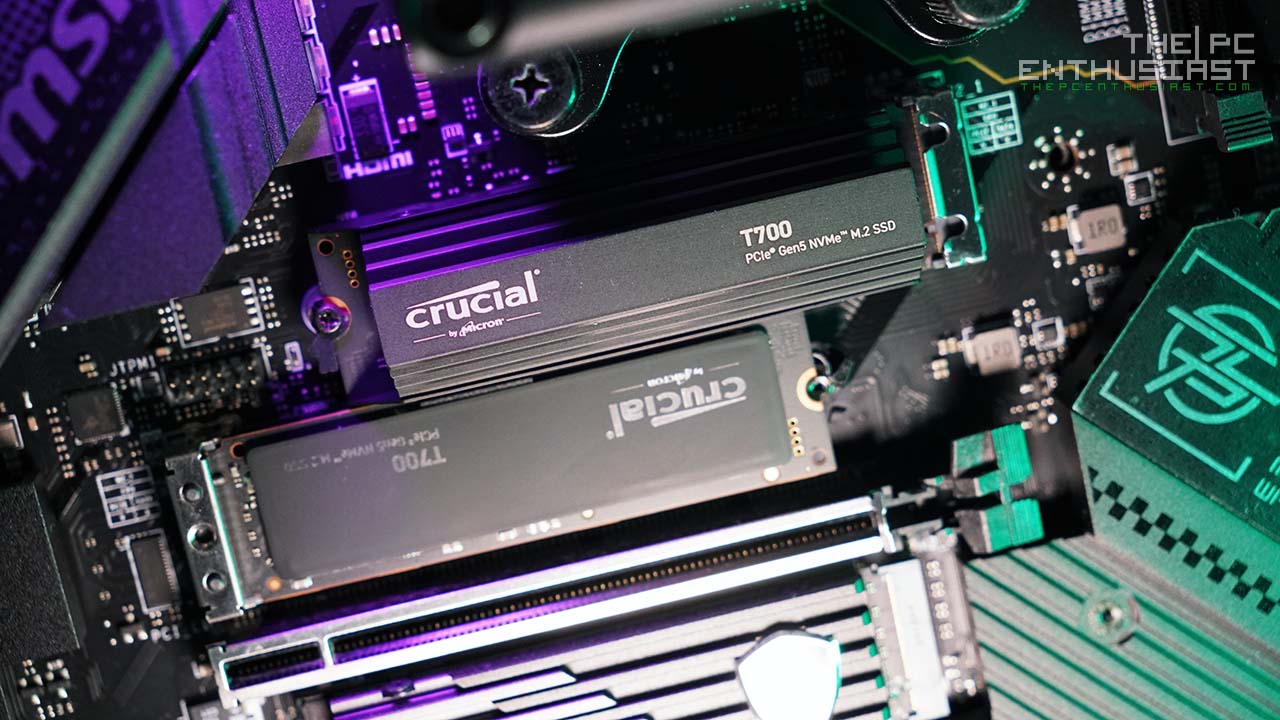Test Setup

Operating System: Windows 7 Ultimate 64bit
Motherboard: Gigabyte X99-UD3P
Processor: Intel Core i7-5960X Haswell-E
CPU Cooler: NZXT Kraken X61
Memory: Crucial Ballistix Sport LT DDR4-2400 16GB
OS Drive: Crucial MX200 500GB SSD
Power Supply: Seasonic 1050W Platinum
Chassis: Dimastech Easy V3.0 Test Bench
Just a note: The benchmark results below are the results I got during my tests and benchmarking. You may or may not get the same exact results. During my tests, each result does not remain at a constant or fix read/write speed. The results below are not cherry picked as well. But the results are the more constant numbers I got while running the same benchmark several times.
Crucial MX200 500GB SSD Benchmarks
ATTO Disk Benchmark
We can see from ATTO Disk Benchmark that the Crucial MX200 is performing just right at its advertised sequential read / write speeds, which are 550MB/s and 500MB/s respectively. It’s faster than the budget friendly BX100 SSD.
Somehow, I am getting a slower read speeds in CrystalDiskMark compared with the BX100 and Samsung 850 Evo. I even got a higher read speed when I installed the MX200 500GB on my notebook. However, sequential write speed is very near with its 500MB/s rated speed just as promised.
AS SSD Benchmark
Above are results from AS SSD Benchmark, copy benchmark and compression benchmark.
According to the Crucial MX200 SSD series’ product page, the drive is able to deliver “550 MB/s sequential read speed on both compressible and incompressible data”. Anvil’s Storage Utility is a great tool to test a drive and see how it deals a compressible, incompressible and mixes type of data. Above we can see that it wasn’t able to hit the 550MB/s sequential read speed, but it was able to perform consistently at around 510MB/s read and 470MB/s write speeds, which is a good sign that it is able to handle both compressible and incompressible data just fine. There are some SSDs, like the Silicon Power S60 SSD, that can’t handle both compressible and incompressible data at the same constant speeds.
Last but not the least is the PC Mark8 Storage test that tests the MX200 with different applications and games, and shows real world performance. Based on the result, the MX200 500GB performs just below Samsung’ 850 Evo, but right above the BX100 500GB.


